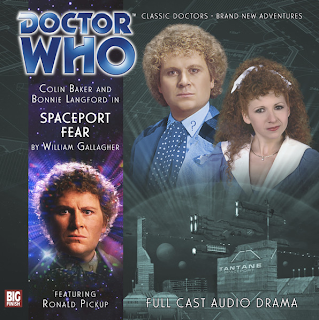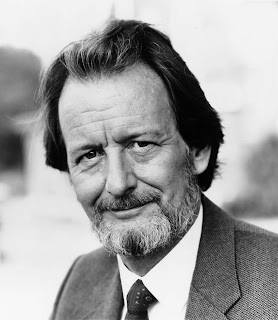A few weeks ago I mentioned finding an old school photograph and how it felt to see Whatsherface, a woman I’d been particularly keen on. I’ve been asked several times since how, if she was so great, I can’t remember her name.
Of course I can remember her name.
I just don’t want you to.
So she’s Whatsherface. And while we’re talking about names and being keen on people, I’d like to tell you a very short story about how my own name prevented me going out with someone.
Actually, my name’s surprisingly problematic. Only this week, when it was my birthday, there was an issue of whether my niece and nephew still call me Uncle Lemmy. When my nephew was four or five years old he was plainly deeply into heavy metal lore and saw in my height and girth something of the rock god legend. Or “William” was just too difficult to pronounce.
Apparently Dar Williams is called Dar for similar reasons: I can’t remember who but someone very young in her family couldn’t say “Dorothy” and it kept coming out Dar. I assume that’s passed, that this person who is very young in her family has now grown up, but Dar stuck and I’d have taken that too. I like Dar. She gets a whole thing with the Daughters of the American Revolution thinking she was named after them. And I get Lemmy.
We compromised this year and they settled on calling me Uncle William. I don’t feel like an uncle; uncles are old people or have names like Napoleon Solo and Illya Kuryakin. But I am an uncle and in fact I am their only uncle. My niece sent me a card with a line about my being a Number 1 Uncle and I thanked her for the sentiment, the thought and the mathematical accuracy.
I think I’ve told you before that William Gallagher also gets phone calls from people wanting to work on Bill Gallagher’s TV shows. Whenever one is on, I gets the calls. I do wonder at people who are applying to me to work on, say, The Paradise, when the show is already airing. The Paradise was still in production when it began airing but, still, you’d think they’d have staffed up by then.
Just staying off the point here and trying to build up some drama, the other week I was in the offices of Doctor Who Magazine and was asked if I were the William Gallagher who was a Doctor Who fan and did lots of fanzines in the 1980s. I’m not.
I’m also not Liam Gallagher.
But it’s a funny thing. You know how we are ultimately all related to one another? We still draw a line somewhere. I don’t know enough about the third-cousin-twice-removed lark but I do know that there is a line. Up to a certain point, we’re related. After that point, we’re not. The line is Liam Gallagher.
I am related to Liam Gallagher but not to his brother Noel.
None of this has much to do with the thwarted love life I did – or I suppose did not – have back when I lived in London in the early 1990s.
My problem is – well, it’s far from my only problem but focus on this for today – my problem is that I cannot conceive of the possibility of you fancying me. Generally speaking, this is completely accurate. But just once in a while… Whatsherface, for instance. I still don’t think she was interested but seven or eight years after I last met her, I realised that she might have been up for trying me out and seeing how it went. But since she’d already rejected me once and since I am an especially stupid man, it took me those years to notice that maybe her torrent of complaints to me about her boyfriend might – might – have been a hint of an expression of a chance of a thought of an interest in maybe – maybe – suggesting I ask her out.
Eight years.
I blame myself.
But she had rejected me. I’d chanced my arm, I’d tried my hand, I’d burnt my fingers.
Still, eight years.
The only time I’ve ever been faster was this moment in 1990s London when it only took me an hour to suspect that someone was interested. I’m going to have to call her Whatsherface II.
I need to flash forward a bit here and point out that I got married and that so long as I keep feeding Angela the drugs and top up the hypnosis, I think she’s as happy as I am.
But back to the 1990s.
It was Pizza Hut.
I lived in a flat and they opened a Pizza Hut opposite my window. The bastards. They knew my weakness. They knew I’d seen Pizza Hut heavily featured in Press Gang. They knew I just liked the stuff.
I set a record for the time between availability and ordering that I have in fact only broken today, this morning, all these years later when Apple’s new iMacs went on sale and I bought one before reading all the way to the end of the word iMac.
Back then, Pizza Hut opens its doors for the first time and instantly I am in there. Whatsherface II is on staff and, honestly, I think I am in there. It takes me an hour to realise this as I put it down to a general I-smile-at-everyone-because-I’m-paid-to-work-here but, honestly, it got more. If I noticed it, it got a lot more.
And I did like Whatsherface II.
But it was never to be. It couldn’t ever be. And that was because of my name.
Harry.
She couldn’t take my order without entering my name and address into their rinky dinky new computer system. It didn’t matter that I was there to get it, it didn’t matter that I lived less than sixteen metres away and even I would never, not ever, not once get someone to deliver that distance. No name, no pizza.
“Harry Broderick,” I said.
I can’t remember now but I must’ve made up an address too.
What I remember is that I used to go to that Pizza Hut quite a lot. I was working way across London, I’d actually got a flat in about as far away from my work as the Tube network could manage. It was a minimum of an hour’s tube ride on a good day and if the wind was in the east. Plus, I’d work late. So I’d regularly get home from work around nine or ten o’clock and that red and yellow sign would be reflected in the window of my flat and those red and yellow pizza smells would be waving at me.
“Hi, Harry!” she’d say.
“Hello, Whatsherface II,” I wouldn’t reply.
She’d take my order and I’d wait. She’d chat away about things and I’d nod, wondering if there were any possible way I could tell her that yes, my name was Harry, but I spelt it William. And then she’d hand me my pizza and thank me for being such a good listener and I’d leave to clog up my arteries with cheese.








